Menu
Menu
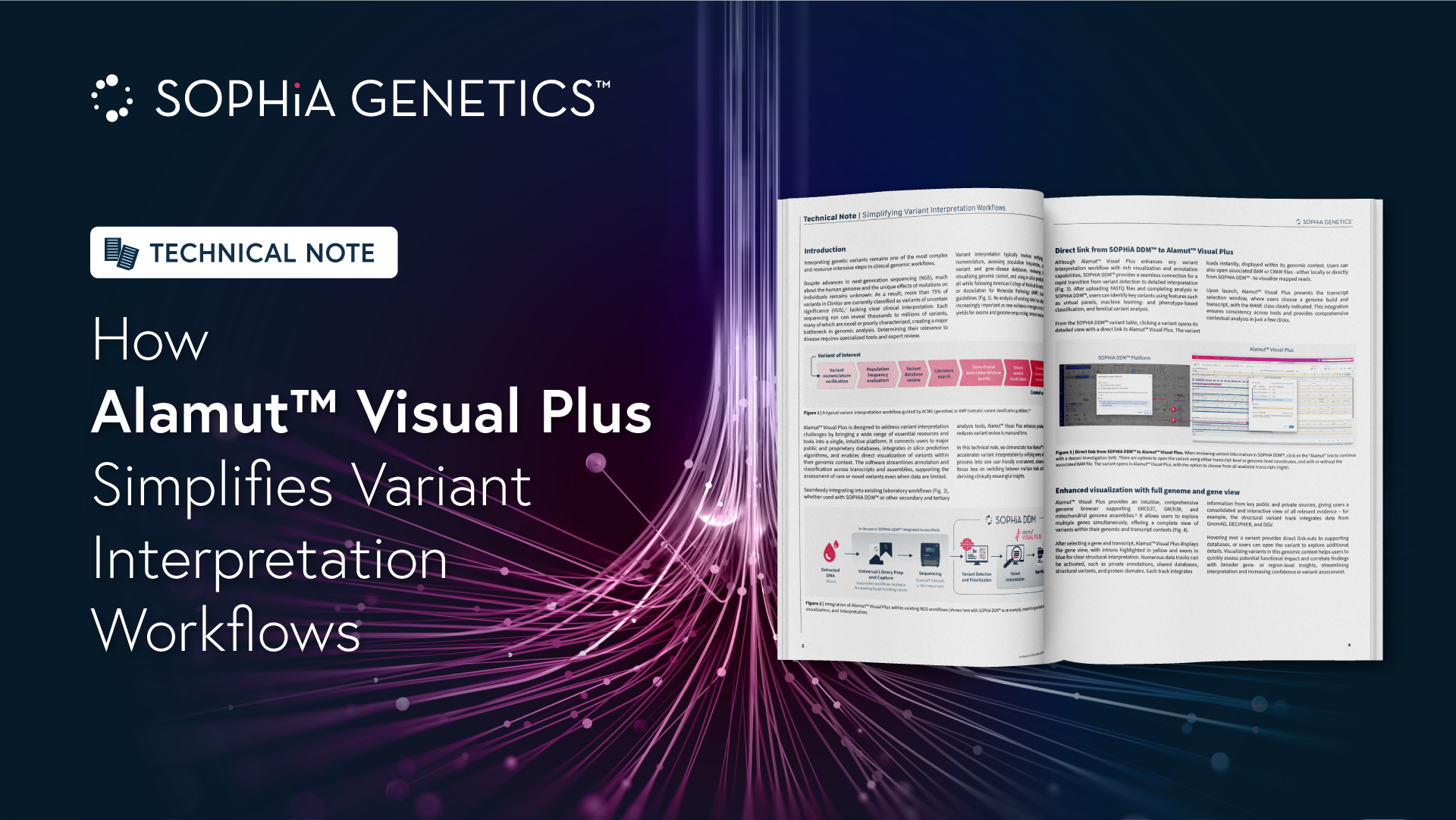
Discover how Alamut™ Visual Plus helps you navigate variant interpretation evidence faster and with greater confidence in this clear, practical guide.
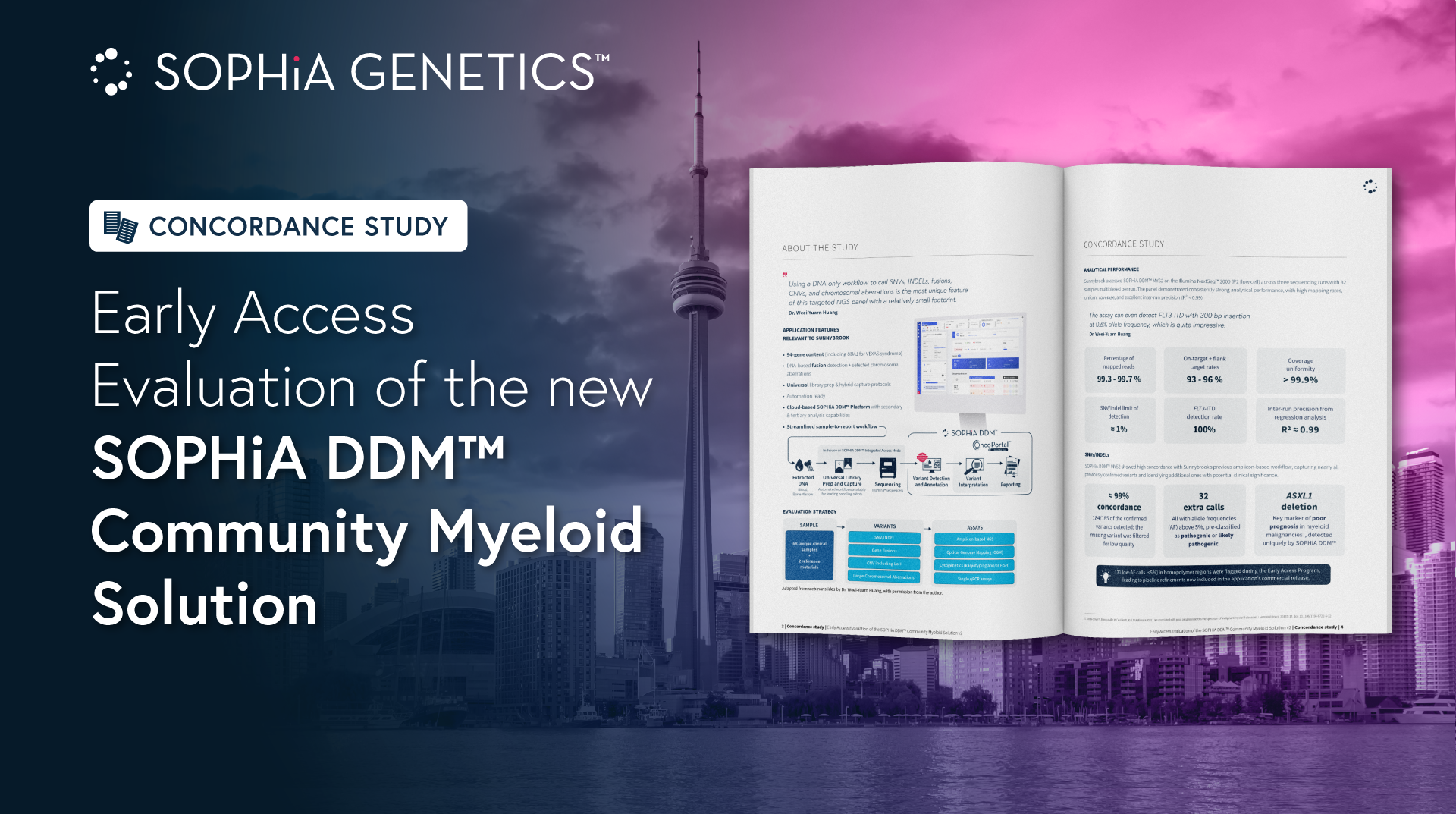
Adapted from Dr. Weei-Yuarn Huang’s (Sunnybrook Health Centre, Ontario, Canada) presentation during the webinar “Evaluating Next-Generation Sequencing Solutions for Real-World Clinical Needs in Myeloid Malignancy,” with permission from the author - This concordance study demonstrates the strong analytical performance of the new SOPHiA DDM™ Community Myeloid Solution and its potential to streamline and consolidate myeloid […]
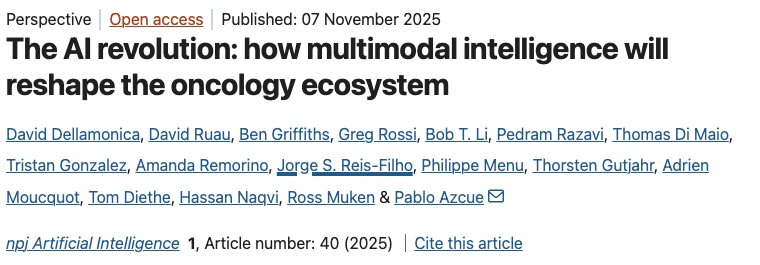
Recently, AstraZeneca, in collaboration with NVIDIA, Memorial Sloan Kettering Cancer Center (MSKCC), and SOPHiA GENETICS, published a perspective paper in npj Artificial Intelligence exploring how Multimodal Artificial Intelligence (MMAI) is redefining oncology, from research to clinical practice, and highlighting the need for clear standards and regulatory frameworks.
This article digest summarizes the paper’s key insights, showcasing how cross-industry stakeholders are already applying MMAI in oncology, from drug development to clinical decision-making, translating innovation into real-world patient benefits.

Hear Dr. Gilles Millat speak about the expansion of cardiogenetic testing and how the SOPHiA DDM™ Cardio Peer Network strengthens variant classification workflows.

Acute myeloid leukemia (AML) remains one of the most genomically complex hematologic malignancies. As new biomarkers and targeted therapies continue to reshape disease classification, next-generation sequencing (NGS) plays an increasingly central role in diagnosis, prognosis, and treatment selection. In this article, adapted from Dr. Hubert Tsui’s presentation at a recent webinar, we explore how NGS fits within the AML patient journey, from first evaluation to meaningful insights.
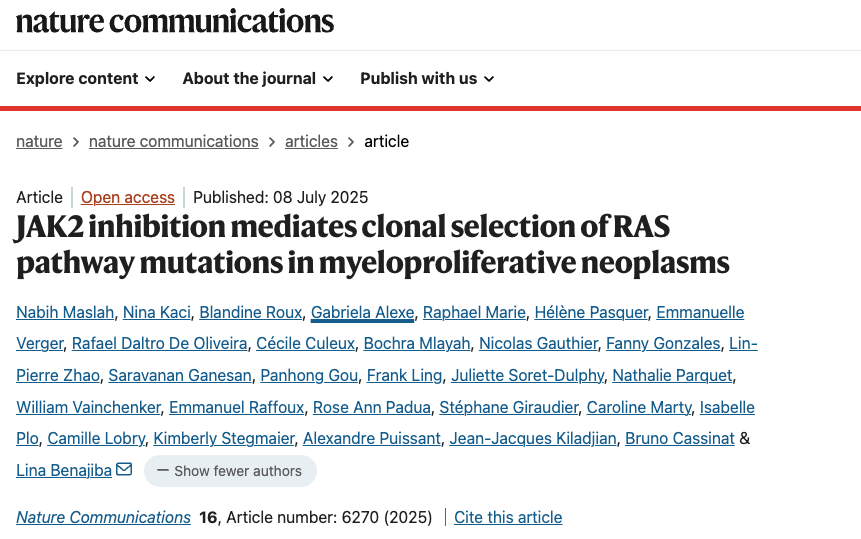
Maslah et al. present a translational study exploring how ruxolitinib and other JAK inhibitors influence clonal evolution in myeloproliferative neoplasms (MPN). Using a SOPHiA DDM™ for Myeloid Malignancies application for evaluation and longitudinal monitoring, the study highlights how treatment pressure can select for RAS pathway mutations, ultimately impacting prognosis and disease progression. Our infographic distills […]
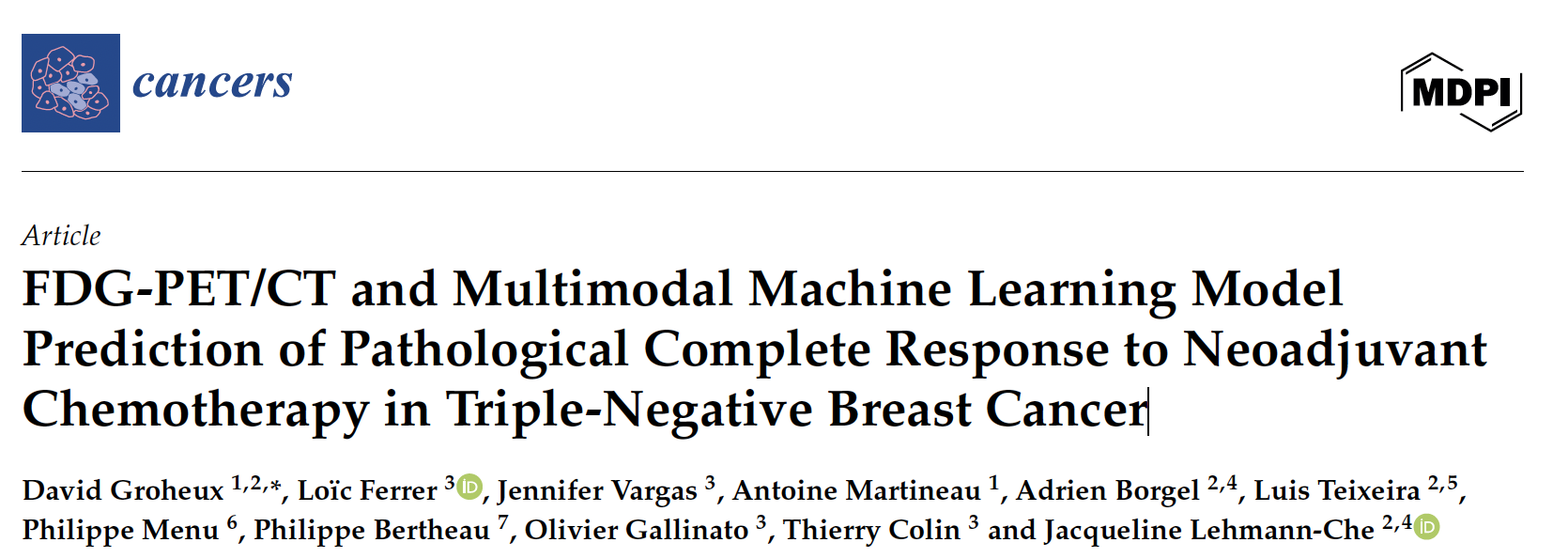
Explore this recent multimodal study to learn how applying machine learning to baseline multimodal data can help predict pathological complete response (pCR) status after neoadjuvant chemotherapy (NAC) for triple-negative breast cancer (TNBC) patients, leading to the proposal of more personalized treatment options.

Discover how a patient from São Paulo, Brazil, finally found answers after decades of uncertainty thanks to the dedicated efforts of the Bioma Genetics Laboratory.

See how Centre Léon Bérard scaled their cell-free DNA analysis with a tailor-made liquid biopsy solution for mutation detection across cancer types.

Gene fusions are key drivers in many myeloid malignancies. As our understanding of these complex events has evolved, so too have the technologies designed to detect them. This blog explores how SOPHiA DDM™ leverages advanced DNA-based workflows to enhance the efficiency of fusion detection, helping labs move faster from sample to insight.
SOPHiA GENETICS products are for Research Use Only and not for use in diagnostic procedures unless specified otherwise.
SOPHiA DDM™ Dx Hereditary Cancer Solution, SOPHiA DDM™ Dx RNAtarget Oncology Solution and SOPHiA DDM™ Dx Homologous Recombination Deficiency Solution are available as CE-IVD products for In Vitro Diagnostic Use in the European Economic Area (EEA), the United Kingdom and Switzerland. SOPHiA DDM™ Dx Myeloid Solution and SOPHiA DDM™ Dx Solid Tumor Solution are available as CE-IVD products for In Vitro Diagnostic Use in the EEA, the United Kingdom, Switzerland, and Israel. Information about products that may or may not be available in different countries and if applicable, may or may not have received approval or market clearance by a governmental regulatory body for different indications for use. Please contact us to obtain the appropriate product information for your country of residence.
All third-party trademarks listed by SOPHiA GENETICS remain the property of their respective owners. Unless specifically identified as such, SOPHiA GENETICS’ use of third-party trademarks does not indicate any relationship, sponsorship, or endorsement between SOPHiA GENETICS and the owners of these trademarks. Any references by SOPHiA GENETICS to third-party trademarks is to identify the corresponding third-party goods and/or services and shall be considered nominative fair use under the trademark law.